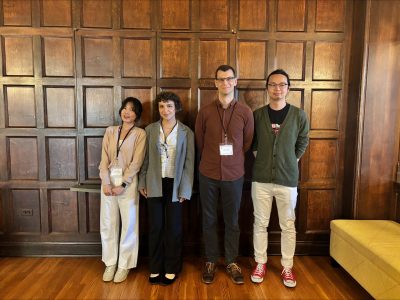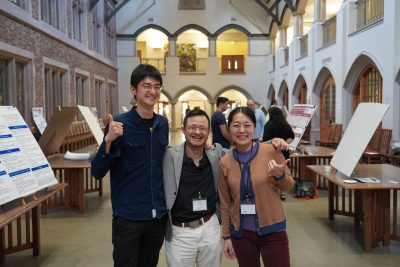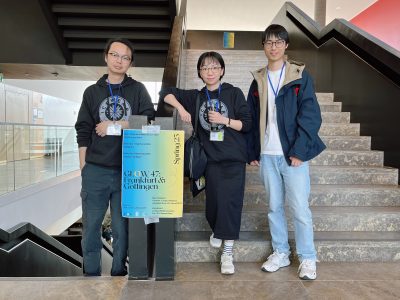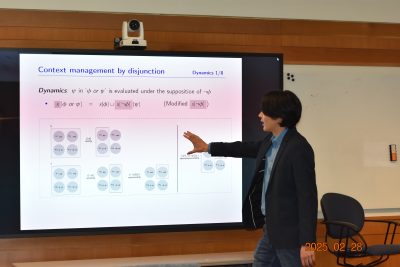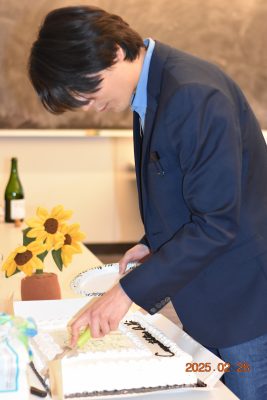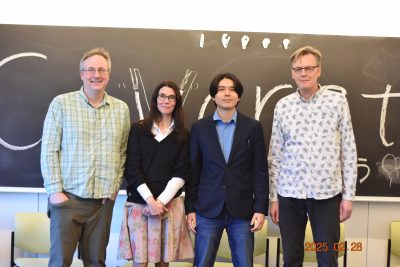UConn linguistics was well represented at three sign language conferences in December, January, and February. At the 10th edition of the SIGN conference (SIGN10), which was held at the University of the West Indies, St Augustine Campus, Trinidad & Tobago, December 9-10, we were represented with the following talks by:
- Diane Lillo-Martin, Deborah Chen Pichler (PhD 2001, now at Gallaudet University) and Elaine Gale. Family ASL: Deaf Children and Hearing Parents Learning ASL Together
- Elaine Gale, Patrice Creamer and Shane Blau (post-doc 2023-24). Language input for Deaf infants: What do Deaf babies need and how can parents provide it?
At the 15th conference on Theoretical Issues in Sign Language Research (TISLR 15), which was held at Addis Ababa University, Ethiopia, January 11-12, we were represented with the following talks by:
- Shengyun Gu (PhD 2023, now at Occidental College), Diane Lillo-Martin, Deborah Chen Pichler, Elaine Gale. ASL Phonology Development in Deaf Children with Hearing Sign-Learning Parents
- Shane Blau. Perceptual discrimination in signed languages: Evidence from deaf and hearing infants
… and posters by:
- Shane Blau, Deborah Chen Pichler, Elaine Gale, and Diane Lillo-Martin. Development of Visual Communication and Sign Language by Deaf Children in the Family ASL Project
- Shengyun Gu. Iconicity for all, but not in the same way: Evidence from weak drop processing
- Linghui Gan. Correlation between word order and information structure in Hong Kong Sign Language
- Linghui Gan. Question Answer Pairs (QAPs) in Hong Kong Sign Language (HKSL)
- Natasha Thalluri and Kathryn Davidson (post-doc 2012-13, now at Harvard University). Universality and variation in sign language comparatives
- Kazumi Matsuoka (1998 PhD, now Keio University, Japan). Reflecting lexical aspect: Interactions of perfectives and verb types in Japanese Sign Language
- Nozomi Tomita, Masashi Tamura, and Kathryn Davidson. Negative possessive and existential sentences in Japanese Sign Language (JSL)
- Kazumi Matsuoka. Reflecting lexical aspect: Interactions of perfectives and verb types in Japanese Sign Language
- Madeline Quam, Annemarie Kocab, Jesse Snedeker, and Marie Coppola. Distinguishing Agents and Patients in Homesign Language Systems
And lastly, at the conference of the Association of College Educators – Deaf & Hard of Hearing (ACEDHH), which was held on January 30-February 1 in Washington DC, we were represented with a talk by:
- Diane Lillo-Martin, Chui-Yi Lee, Elaine Gale, and Deborah Chen Pichler. Bimodal Bilingual Benefits Counter Audism and Linguicism
